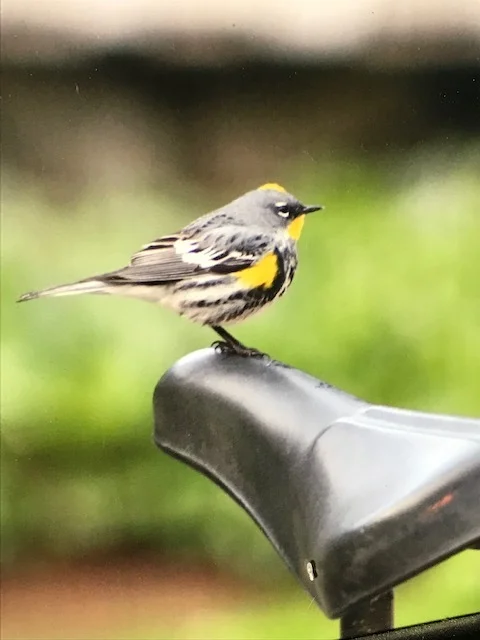I spent part of yesterday afternoon sitting with a mess of tangled Christmas tree lights. My job was to take off all the clips so we could use them on new outdoor lights. I couldn’t help but think of my Grandpa while untangling those strands and removing the little, fussy clips, one by one. You see, it was totally a “Grandpa project.” My Grandpa loved projects that involved problem solving, inventing solutions, detail work, or were simply (in my mind) tedious. This fell into the tedious category, and was the kind of thing he would have graciously volunteered to do for me. He knew me well. He knew that I had little tolerance for tedious projects, repetition, or untangling anything. If I needed four dozen individually wrapped Hershey Kisses unwrapped for Christmas cookies? Grandpa. If I had (I had) carelessly thrown my necklaces into a drawer in a pile and now all the delicate chains were knotted up? Grandpa. Cleaning and storing paint brushes I was too lazy to tend to after painting a room? Grandpa. Removing little, fussy clips from tangled lights? Right up his alley. He passed away in 2005 but resurfaces in my heart with every project that requires me call up patience or attention to detail.
I recently heard a speaker ask, “who taught you about God?” and he came to mind. He never explicitly talked about God or faith, but embodied the saying, “God is in the details.” That phrase has been atributed to many different people: an architect, a novelist, artists, historians, all my Grandpa’s kind of people. He was an engineer himself and an inventor of all kinds of clever solutions that appeared in our home. My Grandpa embodied his faith by paying attention to the details because God lives in those places; God lives in the seemingly little things. The ways we untangle, unknot, put back together, problem solve, and navigate our days are all holy places. God lives in those little details of everyday life whether we think they are tedious projects or tangled messes—God is in all of it.
That mess of tangled Christmas tree lights and all those little, fussy clips? My Grandpa’s spirit reminded me that God was there. God was in the details of that little project—and with patience to unclip them one by one, God’s presence would soon be seen in the new, colored Christmas lights coming on at dusk.





